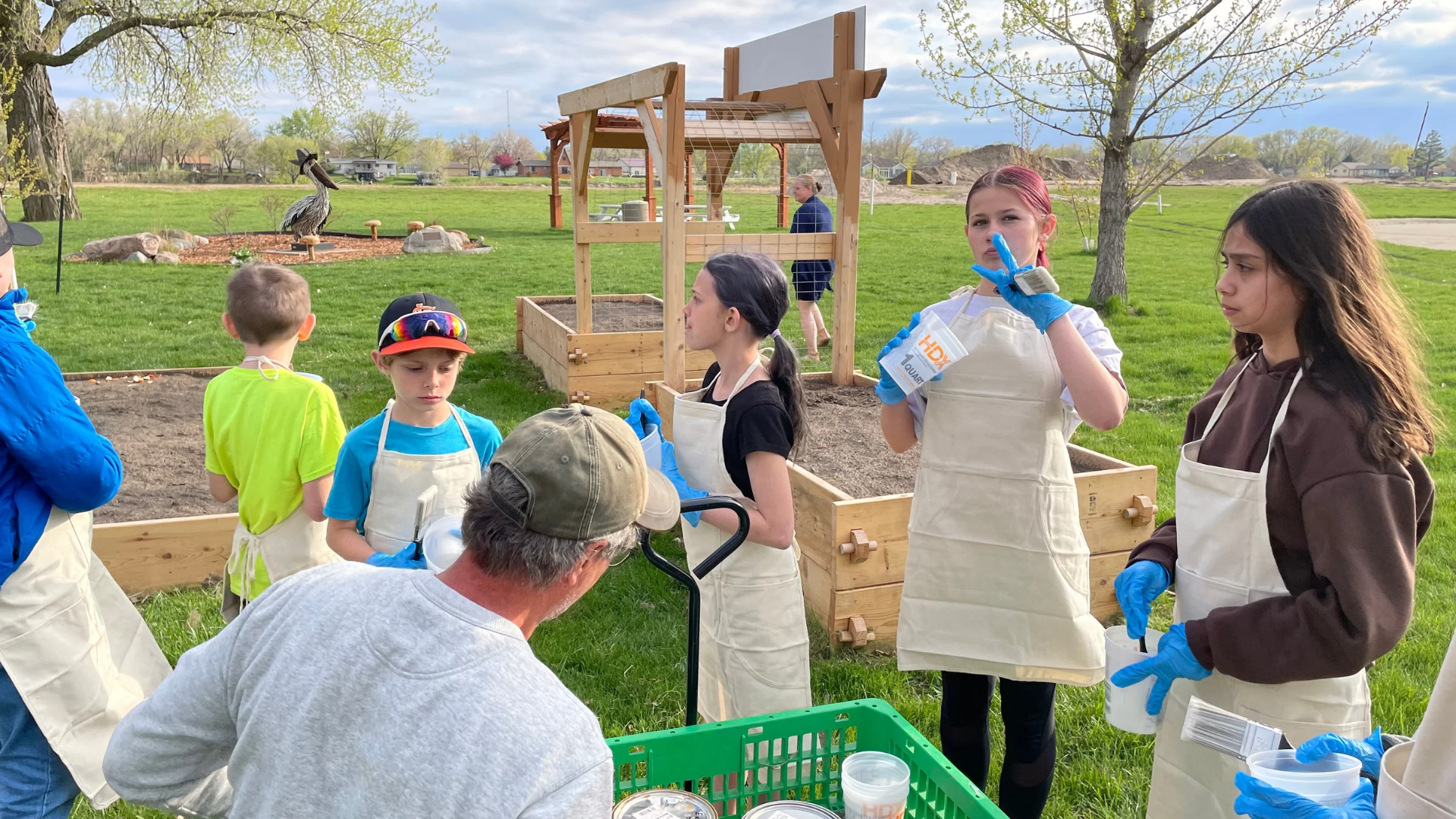Last Thursday evening, seven 4-7th Graders converged on the Center’s campus with gardening on their minds. They’re the first class of students poised to matriculate through a new educational and service-oriented program offered through a collaboration between the Center and the CF Industries Port Neal Complex (CF.)
The program, called the Growers’ Academy and Community Garden, offers a series of 16 free, weekly classes that will span the 2024 growing season, culminating in a family graduation picnic on August 15. During the classes, students will learn about soil properties, plant and human nutrition, sustainability, pollination, the science behind producing healthy plants that bear food, and the benefits of including fresh produce in your diet, among a range of other science, gardening and food-related subjects.
During each 6:00 to 7:30 session, the students spend around 45 minutes in the classroom and 45 more putting their lessons to work outside in the Community Garden. They are asked to take full responsibility for the garden, including amending the soil, planting, watering, weeding, managing potential pests and eventually, harvesting the fresh produce the garden will yield. If they choose to, the young gardeners will be able to take fresh vegetables home to their families, and the Center will make any excess produce available at no cost to anyone in the Siouxland community who can use it.
If it works as intended, the activity will instill in students a sense of ownership for the garden and an appreciation for the value of contributing to their community just for the joy of giving.
Because it’s a bit early in the the season for true gardening, students spent the activity portion of this week’s class painting the unfinished surfaces of the raised beds where they hope to see their garden thrive over this summer. This week’s classroom time covered essential nutrients and in it, the students used periodic tables to compare the elements that are essential to people to those essential to plants. They learned the sources of those elements and how plants and people access them. (See a video recap of our Week 1 class, left.)
“This is one of the most ambitious youth programs we’ve undertaken,” says the Center’s Executive Director, Tracy Bennett. “As a nonprofit, we rely on the generosity of donors to fund our children’s programming, so we’ve gotten good at stretching a dollar. This program is different, thanks to CF’s involvement, and we deeply appreciate the confidence they’ve placed in our staff to bring this joint vision to fruition.”
CF is fully funding the establishment and first year’s operation of the project through two $7,500 donations, one each in 2023 and 2024. The gifts have allowed the Center not only to build raised beds and a canopy structure for the climbing vines of future pea and squash plants, but also to spend more lavishly than usual on classroom supplies and gardening tools and apparel, including personalized canvas aprons and gardening gloves for the students.
The Center’s Education Coordinator, Amanda Gibson, designed the curriculum and is leading the classes. “Our goal for the education component of the project is to introduce kids to concepts that they can carry with them throughout their lives. The lessons they learn here will equip them with most of what they need to know about the processes involved in gardening and the healthy benefits of doing so. And as usual, along the way, we expect to have a lot of fun!”
The classes are not yet filled, and the Center can accommodate as many as 25 students. With the program now underway, we invite parents to register your children as soon as possible or call Gibson at 712-224-5242.
Program Goals
The Center and CF are joining forces to establish a sustainable, innovative program to teach kids about plant and human nutrition, and engender in them a sense of ownership and community. The project also strives to provide free, healthy produce to underserved communities.
Upcoming Classes
Benefits for Kids
4-7th Grade students who participate will learn about preparing soil, planting and maintaining a garden; plant and human nutrition; fertilizers; sustainability; incorporating healthy foods in their diets, and working together to support their community. Through healthy outdoor activity, they will also gain the knowledge and tools to become future gardeners.





